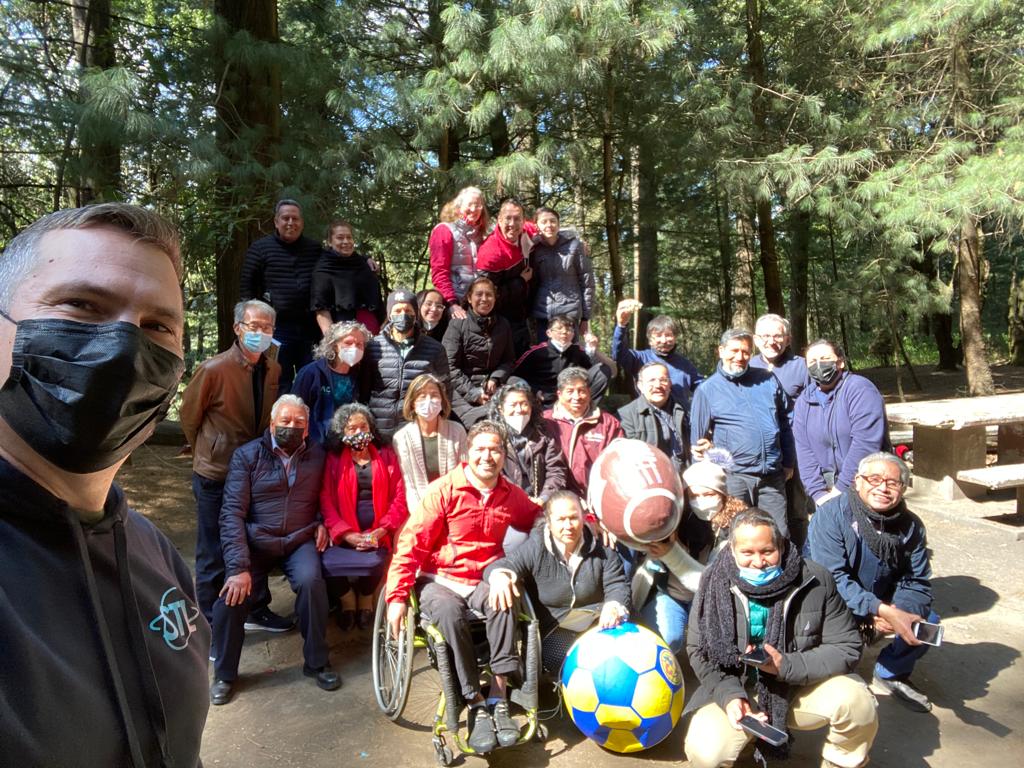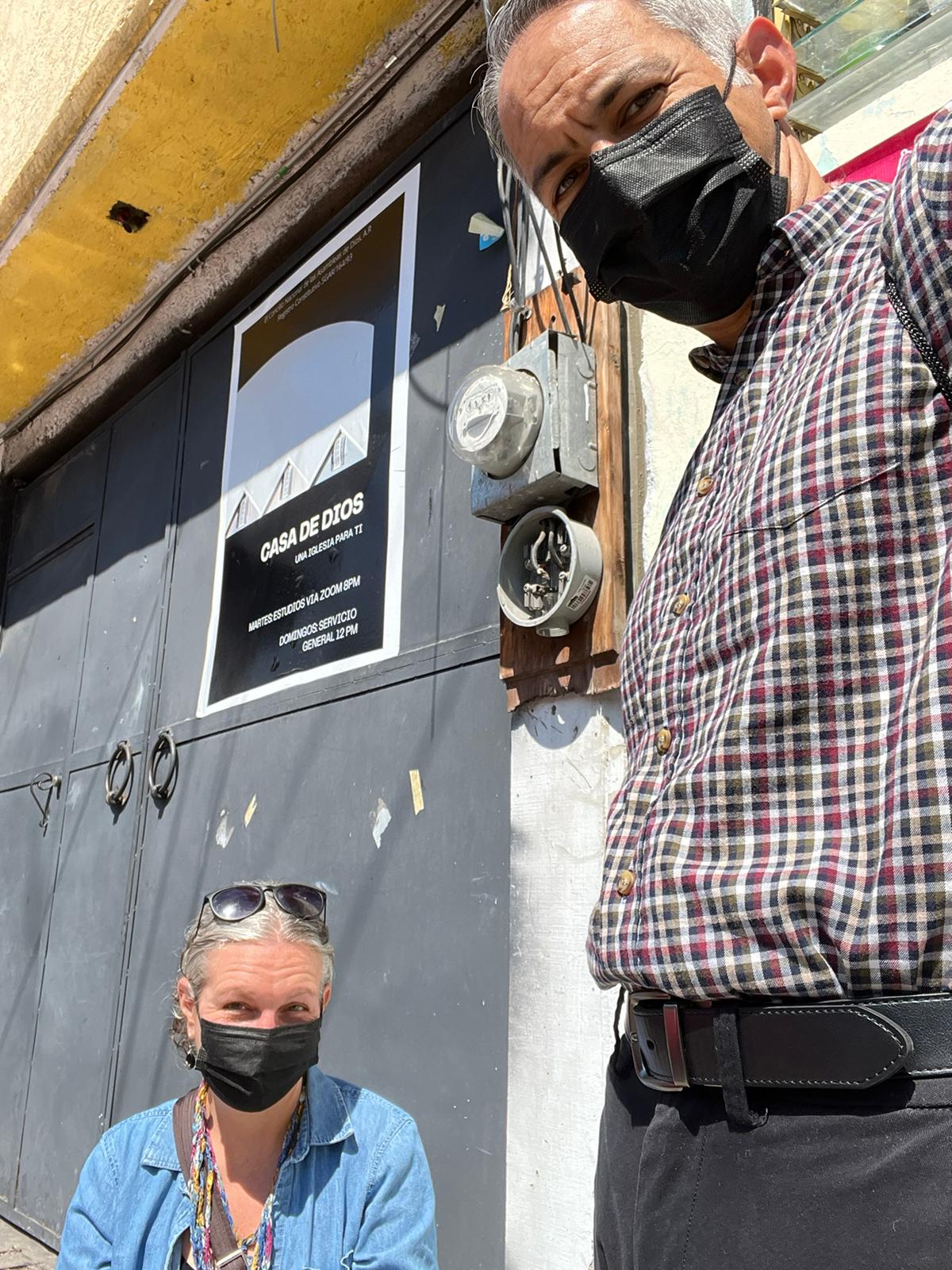This isn’t what we wanted. In February of 2022, we had expected to be viewing the pandemic in the rearview mirror. However, here in Mexico at least, we find ourselves in the middle of a fourth wave of infection, with cases higher than they’ve ever been. Our faces are rubbed raw from the constant use of masks, our hands are irritated from the constant use of sanitizer, and our patience has seemingly worn thin with everyone and everything as we deal with yet another canceled event, another notice of exposure, or another positive test result.
Still, I think what most affects us is the uncertainty of it all. We follow the guidelines, uncertain if they will protect us. We take the treatments, uncertain if they will make us better, and we make plans, uncertain if we’ll be able to keep them. We are in effect off-balance, stumbling into an uncertain future. Nothing works the way it used to, and the solutions we’ve gone to in the past don’t seem to fix the problems we’re facing today.
Here, though, we’re faced with a choice. The situation, it seems, will not change, or at least will not change in the way that we had hoped it would. Therefore, we must ask ourselves are we willing to change in the face of the situation? Will we continue to fight against the pandemic trying to overcome it as an impediment to our progress, or will we adapt and allow this moment to teach us about ourselves and how we can transform and grow in spite of the restrictions? Can we learn through this pandemic that sometimes, the obstacle is the way?
You may be wondering, where is it that you’re coming up with this crazy idea? Would you believe from our time teaching the Bible? As we’ve been teaching in the local church, we’ve encountered moms and children’s workers who are frustrated by the Bible’s complex and deeply flawed characters. Where do they turn to find the role models that their children and students need? As we’ve been teaching in our formation classes, we’ve encountered missionary candidates, ministers who desire to disciple new believers, who are upset by the Bible’s seemingly random and at times contradictory statements. How do they do their work when their manual of faith and practice so rarely reads like a manual? What we’re discovering together, though, is that it is precisely by dealing with the barrier in front of us we achieve our greatest breakthroughs in understanding and appreciating the Bible.
Perhaps an example is in order. Many of you are familiar with the movie the Karate Kid, either the Ralph Macchio/Pat Morita film or the Jaden Smith/Jackie Chan remake. In both films, the protagonist wants to learn martial arts to be able to defend himself. As he agrees to learn from the master that is willing to teach him, he expects to be trained to kick and punch from the get-go. However, contrary to his expectations, he is given menial tasks: Daniel has to wash and wax cars, “wax on, wax off” while Dre must pick up his coat and “put it on” again and again. Frustrated because they feel that they are wasting their time, they’re ready to quit. It’s only when the master shows them that it was actually through the menial tasks that they were learning to defend themselves that they come to appreciate their methods.
So how does this relate to the Bible? First, we need to allow our frustrations with the text to teach us as Dan Kimball, the author of How Not to Read the Bible says, “the Bible was written for us but not to us.” That is to say that, although we can have confidence that every word in the original documents of the Bible is exactly what God wanted it to say, the Bible wasn’t written with our contemporary culture and its assumptions and values in mind. Once we realize that we are, in essence, looking over the shoulder of another civilization as we read the Bible, we’re able to take the position of the learner. We begin to observe the text, not only what is being said but also how it is being said to discover the message that was being conveyed to its original audience. It’s only then, when we agree to read the Bible on its own terms, that we begin to ask the right questions that lead us down the path of understanding. The process is slow and difficult at times, but the work is worth it as through it we begin to see the true wisdom and power of the Word of God, first for the ancients and then for our modern society.
Coming full circle, then, to our present situation, we need to ask ourselves what we will do with this time of uncertainty. Will we chafe at it as the surgical masks on our faces or will we allow it to humble us to understand our complete dependence on God? Will we spend our days placing blame on others either for the restrictions that have been imposed or their failure to follow them or will we begin to understand how connected we are to our neighbors and how our actions have real consequences, both positive and negative, for those around us? Growth and transformation are possible, even in the most difficult seasons, if we’re willing to discover that sometimes the obstacle is the way.
Tags: Church planting, COVID-19, Missions, The Bible Project








